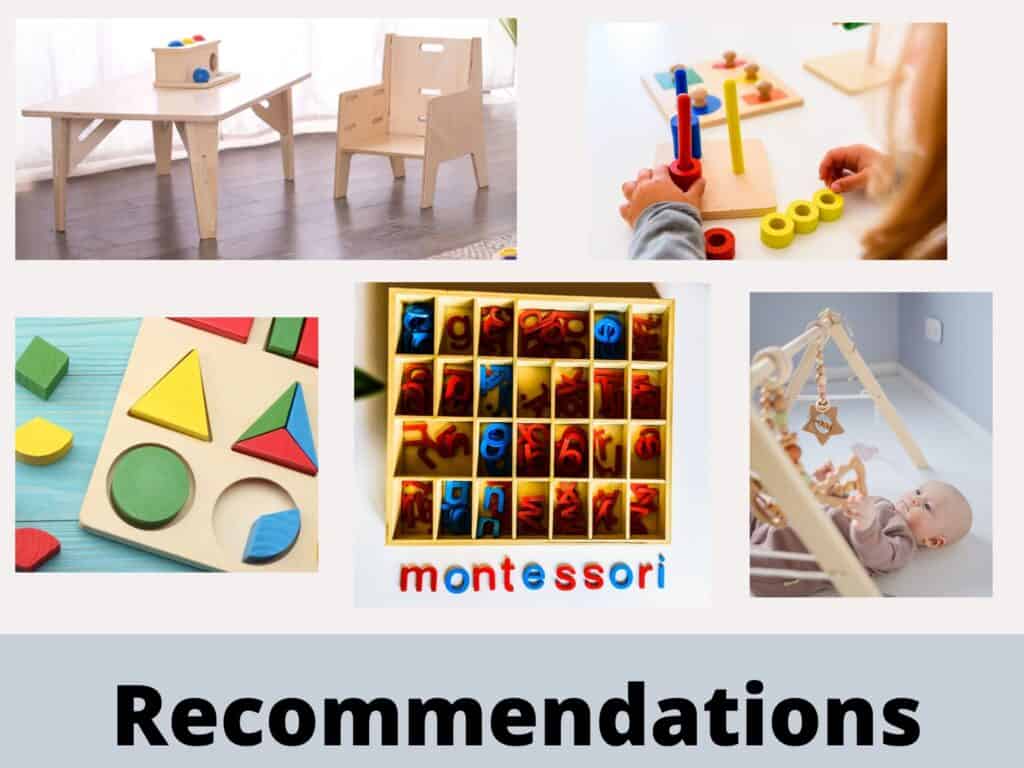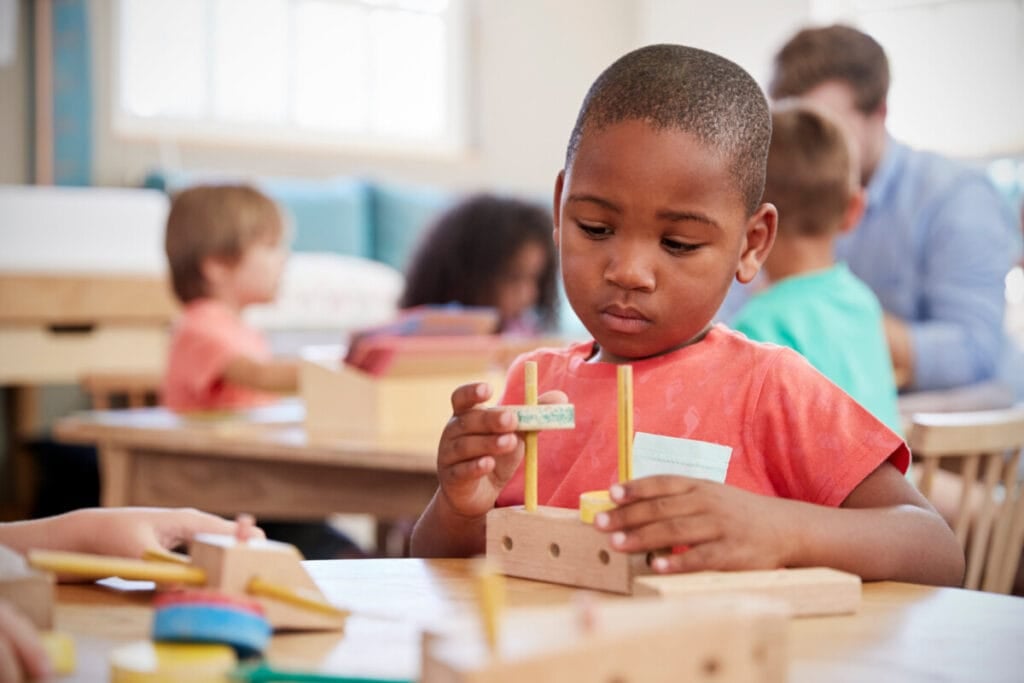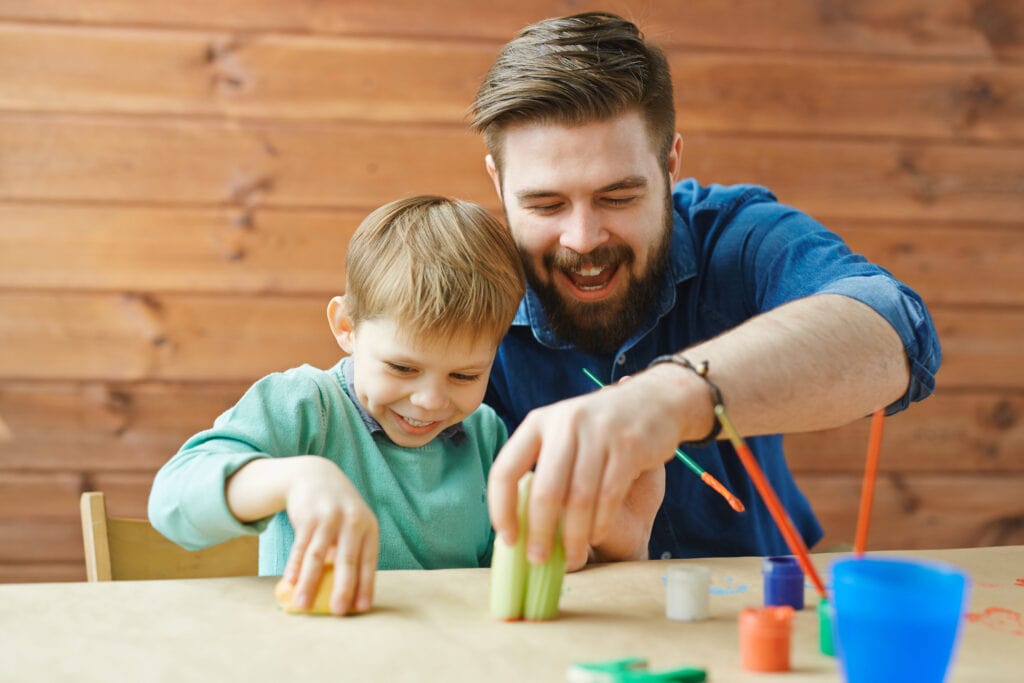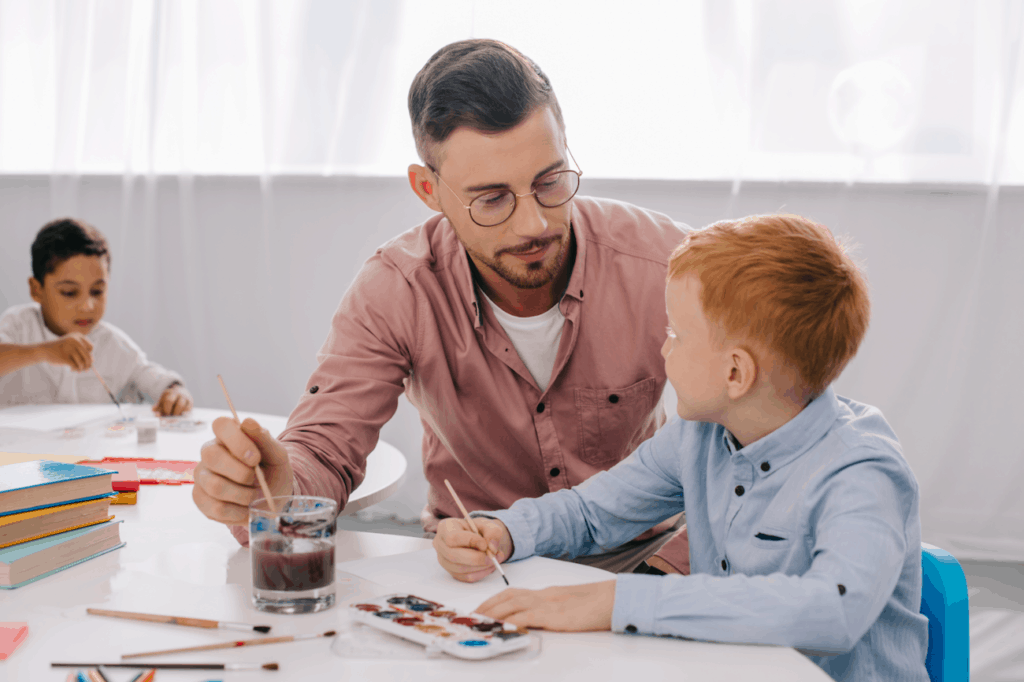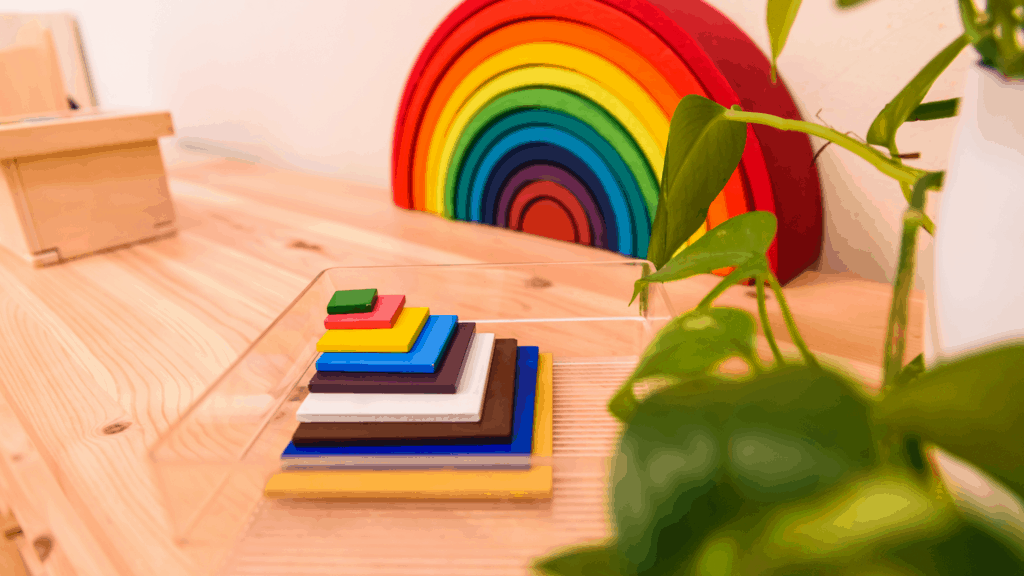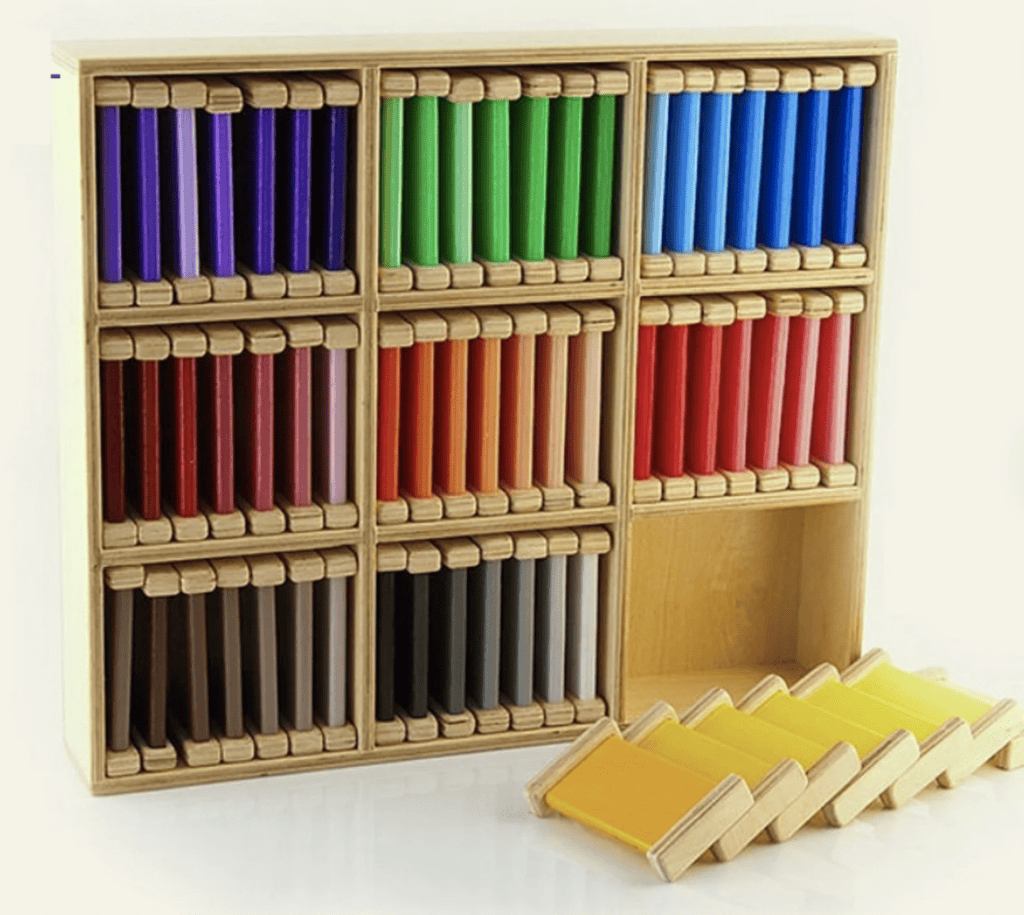The
Maria
That very briefly tapped into the question. The reality is, to understand how the
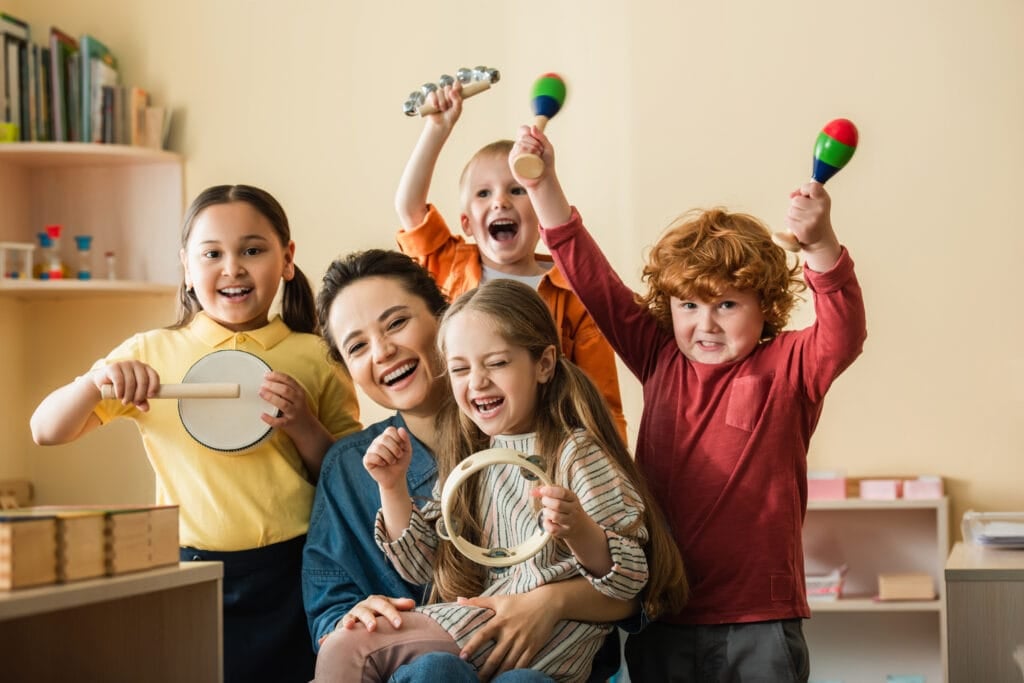
What Is the Montessori Method, and How Does It Work with Music?
Before we discuss how the
Maria Montessori created the
While many believed poor and underprivileged children were “mentally retarded,” Maria’s observations led her to believe otherwise. To prove her beliefs, in 1907, Dr.
The
Now that we know more about the formation of the
Remember, the focus of
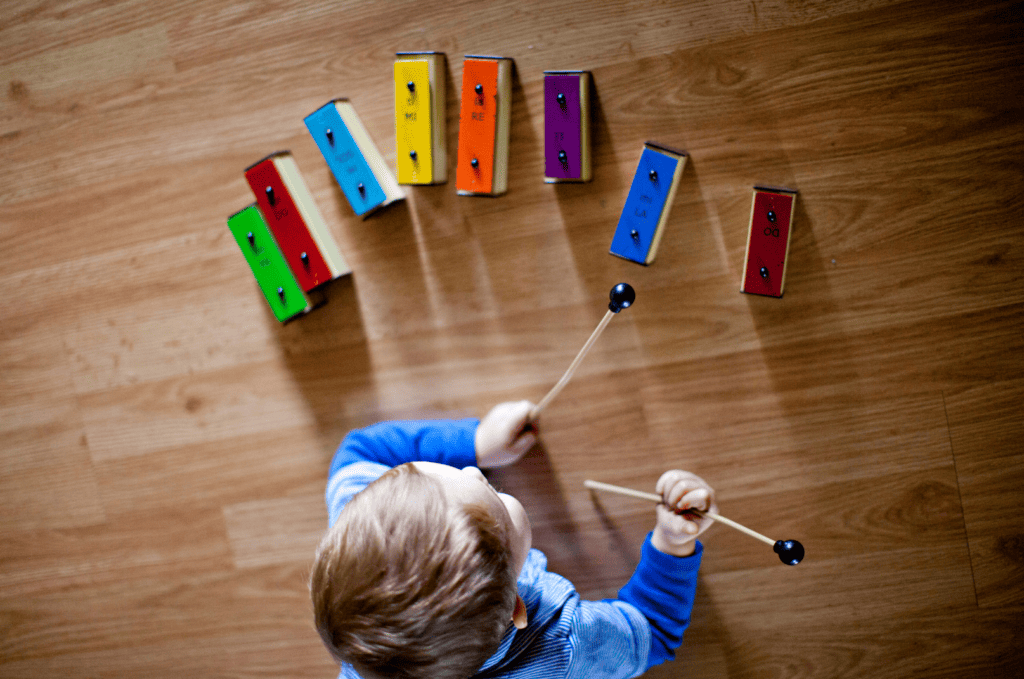
What Principles are Emphasized in Montessori Programs, Particularly with Music?
Maria
Students who were unable to reach standard educational goals were labeled as “slow.” Dr.
Additionally, the teacher should only guide the learning experience not lead it. Teachers must help children develop critical thinking skills (instructional strategies) by tapping into the child’s inner desire to learn, grow, and develop (qualities of children).
Dr.
In
Montessori schools foster creativity as a form of critical thinking in children. Music is a phenomenal way to encourage children to be creative and to express themselves. Teachers will support and encourage children to pursue their musical ambitions; however, children mostly learn music through experimentation.
Learning music with the
Music also encourages the development of the mind, spirit, and body. We will discuss this concept more later on.
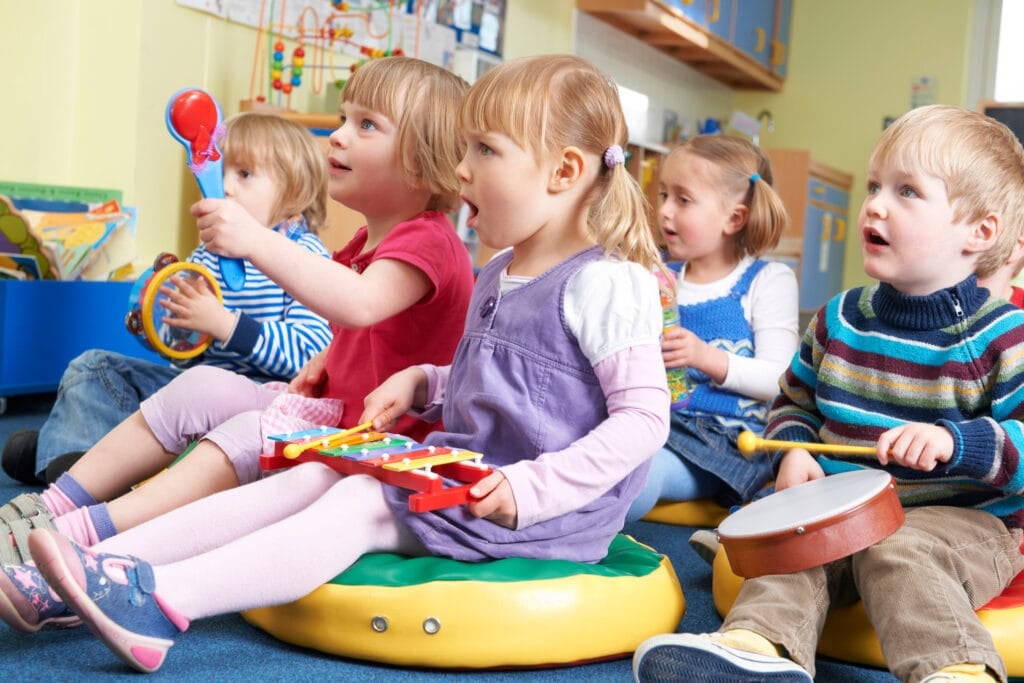
What Did Maria Montessori Say about Music?
Dr. Maria
Learning music requires silence and listening skills. Students hear the different variations of sound and train their ears to identify the different tones. This skill is developed with a learning tool called the Montessori bells.
“Every human group loves music. Each creates its own music, just as it does its own language… Education is a natural process carried out by the child and is not acquired by listening to words but by experiences in the environment.”
The Absorbent Mind and “Education for a New World” by Dr. MariaMontessori
However, as we all know, it is incredibly difficult to teach young children to stay quiet and to pay attention to such minute details. While it is difficult to create the proper environment to cultivate such fine skills,
“The rigorous scientific education of the sense of hearing is not practically applicable to the didactic method. This is true because the child cannot exercise himself through his own activity as he does for the other senses. Only one child at a time can work with any instrument producing the gradation of sounds. In other words, absolute silence is necessary for the discrimination of sounds… Success [in music education] is bound up with the need for the production of plenty of music around the child, so that there is set up an environment calculated to develop musical sense and intelligence.”
“The Discovery of the Child” by Dr. MariaMontessori (Source 2)
While it can be difficult to keep children quiet, music has the remarkable ability to keep children engaged for long periods of time. Because music extends their relatively short attention spans, it is well worth any challenge it creates. In other words, the benefits of teaching children music outweigh the troubles it causes at the moment.
Throughout Dr.
Dr.
“Music… formed part of the sacred heritage that each group…transmitted to their children.”
“Man’s Spiritual Expressions: Language and Music” by MarioMontessori (Source)
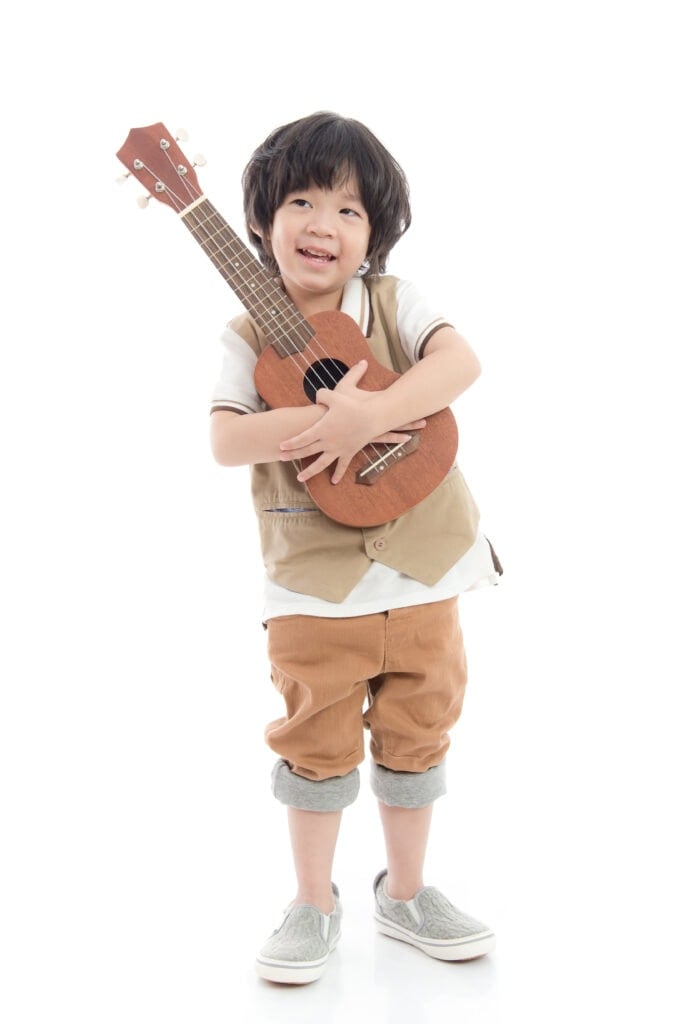
Where Maria Montessori Researched Music Education, What Does the Research Say?
Seeing the child as a “whole” has been a principle in the
When children utilize and manifest their inner creativity through music, they come to understand themselves better. Music can even help children develop greater self-esteem, which is remarkable and will bring many benefits.
Children who learn with music are more prepared to problem solve, have increased motivation, increased spatial abilities, and they develop other skills that will help them throughout their life.
Music even assists with brain development! Toddlers and young children rapidly develop new nerve connections in their brains. As children listen to and create their own music, new nerve connections are formed. Forming these pathways early on has a significant benefit for learning later on. These pathways unlock the child’s ability to develop reading, writing, and math skills.
As mentioned earlier, music encourages hands-on learning and learning through the senses. When a child uses their senses to learn, they develop not only their mind, but their spirit and body as well. Music education truly does bring wonders!
The first few years of a child’s life are crucial for learning from music. At this time, children are most sensitive to new sounds and patterns. After their brain forms pathways relative to the sounds and patterns, it can become commonplace to the child. Children will benefit most from music education early on.
Music does not stop having a positive effect on learning after elementary education. Music assists children with academics as they develop reading, writing, and math skills. Greater exposure to music education can predict higher performance in school later on. More specifically, these children score higher in science and math on standardized tests. Even adults can benefit from music education!
Students with more exposure to music education tend to be more confident, more focused, and more motivated to learn other subjects. Additionally, it has been found that children involved in
That is likely because
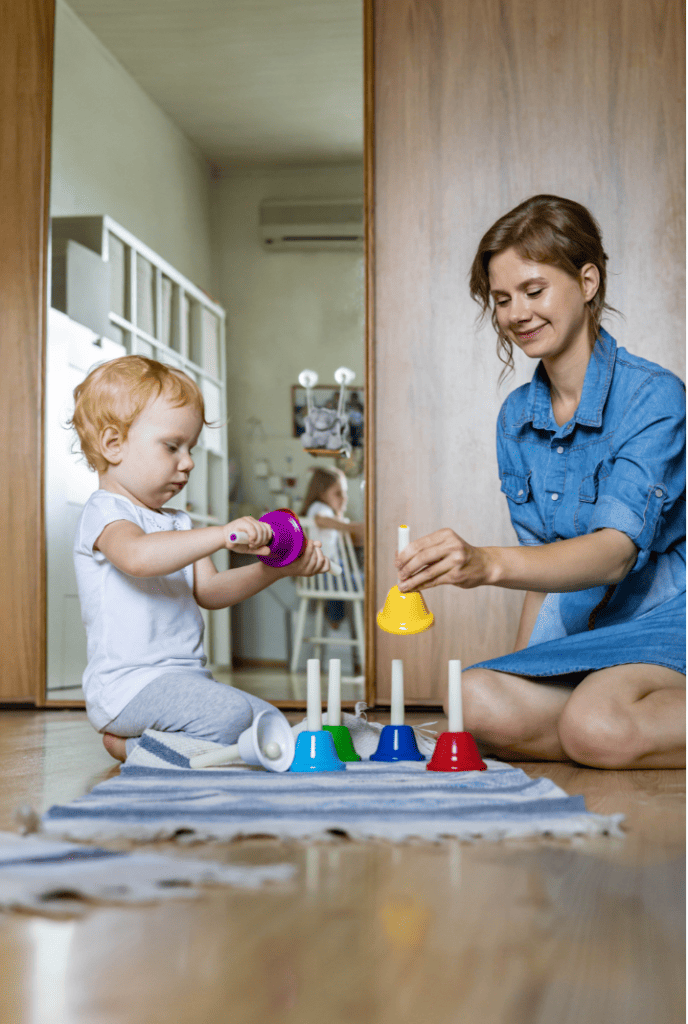
What Does Music in Montessori Programs Look Like Today?
Music plays a role in nearly every part of
Music teachers start by teaching the group as a whole. The teacher will demonstrate how to use an instrument or sing a note while the children watch silently. The instructor will complete the task multiple times and then ask the children to do the same. This same process is repeated with the students individually.
Each student’s learning schedule (referred to as a plan book in
The goals of
One tool commonly used in
Much of the music curriculum for
When learning music through the
There is a variety of musical activities children participate in. The more diverse the activities are, the more the child will learn. Children are only capable of remembering 24% when they hear, 40% when they see, and 70% when they participate in activities that stimulate multiple senses.
Music in the
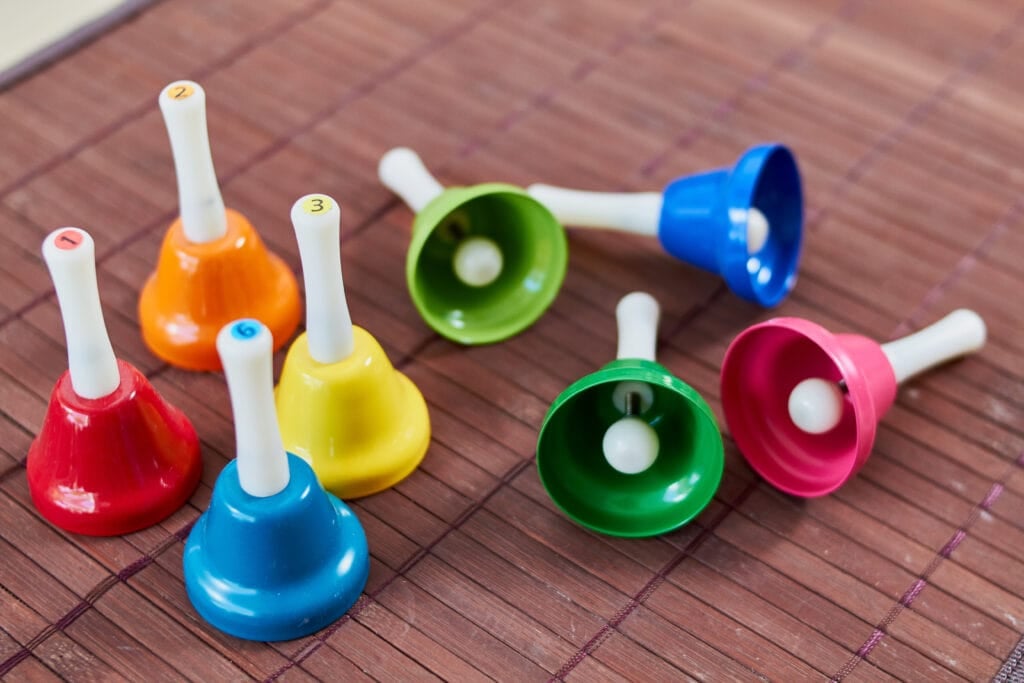
All Sources: National Association of Music Education, Montessori Services, Step by Step Montessori Schools, The Montessori School, Eric Education and Research, Journal of Montessori Research Volume 6 Issue 1, Making Music in Montessori, Vernon Hills Academy, Montessori Mozarts, Red Orbit, and Every Star is Different
